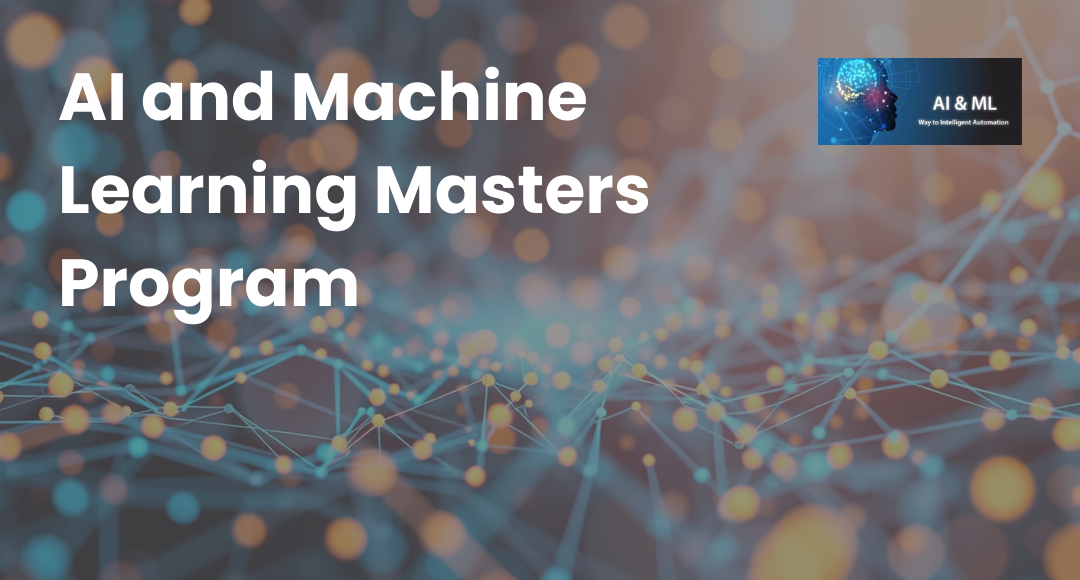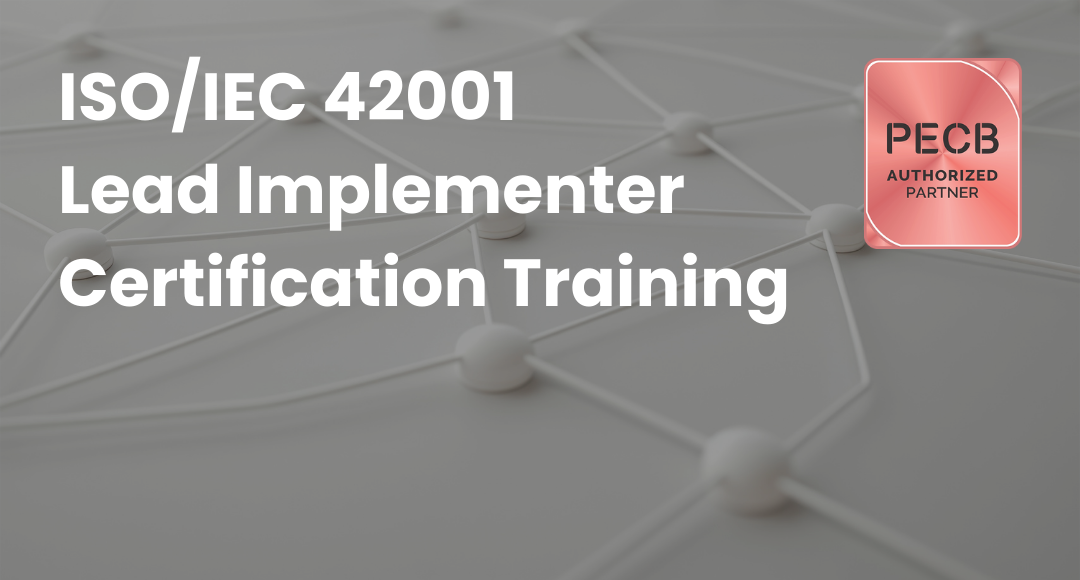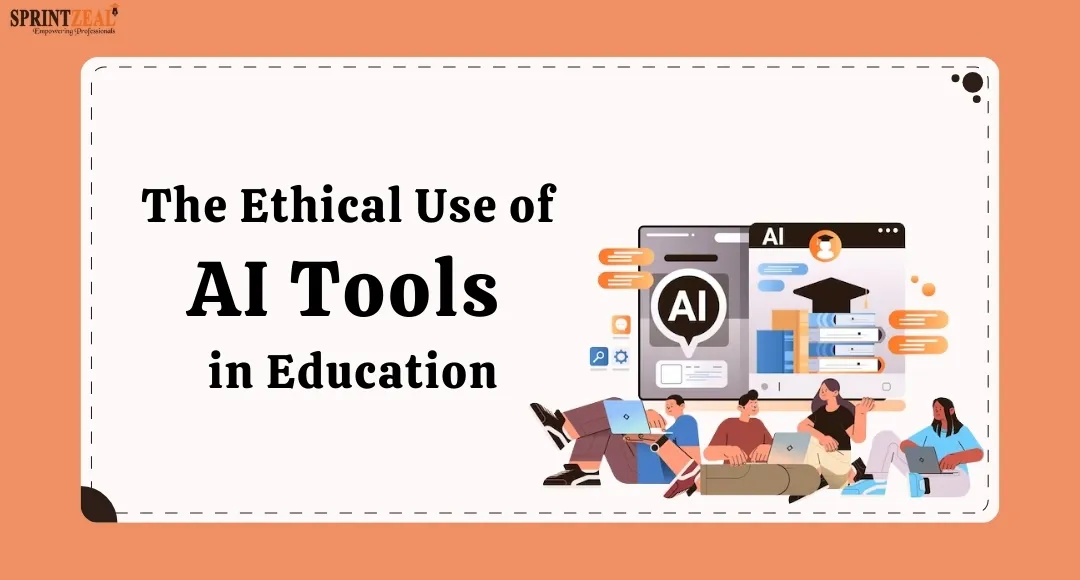Integrating AI to Personalize the E-Commerce Customer Journey
-
 By Sprintzeal
By Sprintzeal - Published on May 1 2025

In a developing digital economy that is becoming more competitive, e-commerce companies constantly face the challenge of offering customers smooth and customized experiences. Consumers now require responsive service, intuitive navigation, and context-relevant recommendations, so organizations have to go beyond traditional strategies and adopt intelligent solutions. Artificial intelligence (AI) is a fantastic innovation within this advancement.
AI is altering organizations' perceptions of and relationships with customers. Online businesses may now deliver each consumer a personalized experience based on their unique preferences and activities, including adjusted pricing, customer service automation, and automatic product suggestions.
While product recommendations and search functionality are often associated with AI's application in personalization, its influence is realized throughout the entire customer journey, from acquisition and onboarding to engagement post-purchase. In this article, we'll examine how AI is applied at various stages of the e-commerce consumer journey and how its capabilities enhance personalization efforts, including email marketing campaigns.
Table of Contents
The Shift Toward Intelligent Personalization
Traditional personalization methods were primarily based on broad client groups and pre-programmed rules. Even though useful to some extent, these processes often lacked the responsiveness to adjust at once to dynamic individual behavior. In contrast, AI personalization responds in real-time to shopper behavior via the application of machine learning algorithms, real-time data processing, and predictive analytics.
E-commerce businesses can engage customers more profoundly due to this insight. Machine learning is able to tailor marketing messages, product suggestions, and even web content to an individual's unique experience as opposed to simply suggesting popular items or blasting generic email campaigns.
For example, a repeat customer might get personalized suggestions from their browsing and purchase history, whereas a first-time visitor to an online clothing store might get popular items and onboarding notices. More engaging and convenient shopping is created through these subtle interactions.
Role of AI in Customer Acquisition
Personalization begins even before a customer ever makes a purchase. By advanced targeting, AI technologies help e-commerce firms attract the optimal customers. So that they will know which future customers are apt to engage with a business, algorithms scan customer data from sources as diverse as search history, social media action, and prior engagement.
These insights facilitate improved messaging and wiser placements for advertisements. AI ensures campaigns operated on the premise of search engine marketing, influencer alliances, or social advertisements reach individuals with patterns matching your products.
Further, this initial engagement is driven by email marketing. AI can personalize onboarding emails based on a user's device type, source of entry, or initial-visit browsing behavior. Most email marketing platforms now offer integrated AI features to automate these workflows so that the first impression remains consistent and personalized.
Companies can automate personalization attempts and communicate consistently at this stage through the application of email marketing tools. The platform, for instance, can send a behavior-based reminder email with personalized product promotions or rewards to come back if a shopper browses a product page but fails to complete the purchase.
Today, many email marketing platforms leverage machine learning to enhance the send time, subject line, email frequency, and content based on user interaction patterns.
Enhancing On-Site Experience with AI
Once customers are on-site, artificial intelligence is crucial to creating a personalized shopping experience. This includes AI-enhanced search capabilities, tailored product suggestions, and dynamic content adaptation.
Product Recommendations
Product recommendation systems are likely the most visible use of AI in e-commerce. To serve up extremely personalized recommendations, such systems analyze what a user is doing, what they have been looking at, what they've put into their basket, or what they have purchased, and compare it with what other, similar users, have done. These recommendations are available throughout the site, including on checkout pages, category pages, and product detail pages. They are not only visible on the homepage.
These suggestions are regularly updated based on new information to ensure they continue to accurately represent the evolving tastes of the customer. AI recommendation systems drive increased average order values and increased conversion rates.
Intelligent Search
Furthermore, by adapting from user feedback and generating more precise results, AI enhances site search functionality. AI-driven search is able to recognize user intent, consider misspellings, and recommend similar products instead of relying on exact keyword matches. This leads to an improved user experience and faster product discovery.
Personalized Content and Layout
AI can even transform a website's content layout based on user profiles. First-time visitors might be served trust-building content such as shipping laws or customer testimonials. Regular buyers might be presented with a loyalty dashboard and replenishment suggestions. Lower bounce rates and higher engagement are two advantages of this adaptive experience.
Improving the Checkout Process and Post-Purchase Experience
AI extends beyond the point of sale. Building long-term consumer loyalty requires post-purchase engagement, and AI aids in personalizing these exchanges.
Dynamic Pricing and Offers
Online shopping websites can now offer personalized discounts or incentives during the process of checkout owing to artificial intelligence. AI is able to predict when a buyer might abandon a cart and offer a timely incentive to complete the sale by analyzing consumer behavior and purchase history.
Personalized Email Campaigns
Email remains an important point of contact in the post-purchase customer journey. AI can be utilized to personalize post-purchase email to include content like usage tips and maintenance guidelines, personalized thank-you messages, or suggestions for complementary products.
Today, many email marketing tools leverage machine learning to enhance the send time, subject line, email frequency, and content based on user interaction patterns. Email delivery, opening, reading, and response are all ensured by this AI-driven feature.
Because email marketing systems are a bridge connecting on-site behavior and off-site communication, the second reference to them becomes especially relevant here. To build brand bonds and facilitate repeat purchase, a customer who buys exercise equipment may get follow-up emails with accessories or fitness tips.
Customer Support and Retention
AI is also finding increasing applications in customer service through automated assistance systems and chatbots - in fact, an efficient AI customer service agent can not only handle order tracking and returns, but continuously learn from interactions, reducing response times and improving retention.
These systems address common issues such as order tracking, returns, or product info by making use of NLP for interpreting consumer requests and providing instant replies. Given these benefits, organizations increasingly evaluate AI Customer Service Solutions to strengthen their service workflows.
AI-driven support tools gather data that can inform future interactions as well as accelerate response times. For example, this data could be used to customize a customer's purchasing experience with sizing recommendations or content if they regularly ask about size recommendations.
AI is also able to identify potential customers who are about to exit by observing trends in their actions, such as low interaction or poor service. In order to retain these customers, companies can then employ proactive steps such as re-engagement mails, surveys, or personalized promotions.
Ethical Use of AI in Personalization
Companies must exercise caution when collecting, storing, and using consumer information as AI becomes more integrated into personalization efforts. Customers are becoming more sensitive to privacy, and legislation like the CCPA and GDPR is mandating that companies act more transparently with data.
E-Commerce companies can also navigate the tightrope between personalization and privacy by making sure AI power is harnessed in an ethical and responsible manner. Consumers should have a choice when it comes to what information they share and how their experiences are customized.
E-commerce sites need to get the balance right between personalization and privacy, while also making sure AI muscle is used wisely and responsibly. Shoppers deserve a say in what they share and how their data are used for personalization.
Establishing trust with responsible use of AI is not only a safeguard against violations but a booster of your brand’s trustworthiness too.
Introducing AI in the e-commerce buyer journey is not a fantasy any longer, but what is driving business now. At each stage of the user journey including customer acquisition and post-sale retention, AI enhances the user experience by enabling timely, relevant and personalized interactions.
AI affects complementary technology Email marketing software firms. Although it helps businesses remain in personalized contact not associated with websites, smart search and dynamic product recommendations are common features soci-al email marketing software are rated most mentioned tendencies too.
When it comes to customer expectations, e-commerce businesses leveraging AI-driven customization will become the new standard. Organizations can drive enhanced customer satisfaction, loyalty, and, ultimately, top-line revenue by taking a complete view of the customer experience and applying AI to facilitate smarter engagement.
Conclusion
All in all, AI becoming part of the e-commerce customer experience is getting closer to being a must-have as we grow and grow our digital marketplace. From acquiring new customers with perfect targeting, to optimization of every touchpoint, to proving that you can hold onto them post-purchase, AI gives you the power to deliver experiences that stick.
By thoughtfully leveraging such AI solutions as recommendation engines, intelligent search, and predictive email marketing, businesses can keep pace with changing customer demands, improve conversion rates, and create long-term loyalty. E-commerce organizations that must have focused on AI-powered personalization should have been better positioned to compete, engage, and convert in today’s experience economy.
Subscribe to our Newsletters
Popular Programs
Trending Posts
Deep Learning vs Machine Learning - Differences Explained
Last updated on Dec 12 2024
The Importance of Ethical Use of AI Tools in Education
Last updated on Nov 14 2025
Free Nano Banana Pro on ImagineArt: A Guide
Last updated on Nov 24 2025
AI and Future Opportunities - AI's Capacity and Potential
Last updated on Jun 8 2023
Top 10 Career Opportunities in Artificial Intelligence
Last updated on Oct 5 2023
Explore Top 8 AI Engineer Career Opportunities
Last updated on Oct 18 2023
Categories
- Other 69
- Agile Management 45
- Cloud Computing 56
- Project Management 172
- Big Data 66
- Business Management 88
- Digital Marketing 78
- IT Service Management 29
- Programming Language 58
- AI and Machine Learning 76
- IT Security 112
- Quality Management 78
- IT Hardware and Networking 25
- Microsoft Program 4
- Workplace Skill Building 13
- Risk Management 9
- Information Security 8
- Leadership and Management 9
- Corporate Training and Development 1
Trending Now
Consumer Buying Behavior Made Easy in 2026 with AI
Article7 Amazing Facts About Artificial Intelligence
ebookMachine Learning Interview Questions and Answers 2026
ArticleHow to Become a Machine Learning Engineer
ArticleData Mining Vs. Machine Learning – Understanding Key Differences
ArticleMachine Learning Algorithms - Know the Essentials
ArticleMachine Learning Regularization - An Overview
ArticleMachine Learning Regression Analysis Explained
ArticleClassification in Machine Learning Explained
ArticleDeep Learning Applications and Neural Networks
ArticleDeep Learning vs Machine Learning - Differences Explained
ArticleDeep Learning Interview Questions - Best of 2026
ArticleFuture of Artificial Intelligence in Various Industries
ArticleMachine Learning Cheat Sheet: A Brief Beginner’s Guide
ArticleArtificial Intelligence Career Guide: Become an AI Expert
ArticleAI Engineer Salary in 2026 - US, Canada, India, and more
ArticleTop Machine Learning Frameworks to Use
ArticleData Science vs Artificial Intelligence - Top Differences
ArticleData Science vs Machine Learning - Differences Explained
ArticleCognitive AI: The Ultimate Guide
ArticleTypes Of Artificial Intelligence and its Branches
ArticleWhat are the Prerequisites for Machine Learning?
ArticleWhat is Hyperautomation? Why is it important?
ArticleAI and Future Opportunities - AI's Capacity and Potential
ArticleWhat is a Metaverse? An In-Depth Guide to the VR Universe
ArticleTop 10 Career Opportunities in Artificial Intelligence
ArticleExplore Top 8 AI Engineer Career Opportunities
ArticleA Guide to Understanding ISO/IEC 42001 Standard
ArticleNavigating Ethical AI: The Role of ISO/IEC 42001
ArticleHow AI and Machine Learning Enhance Information Security Management
ArticleGuide to Implementing AI Solutions in Compliance with ISO/IEC 42001
ArticleThe Benefits of Machine Learning in Data Protection with ISO/IEC 42001
ArticleChallenges and solutions of Integrating AI with ISO/IEC 42001
ArticleFuture of AI with ISO 42001: Trends and Insights
ArticleTop 15 Best Machine Learning Books for 2026
ArticleTop AI Certifications: A Guide to AI and Machine Learning in 2026
ArticleHow to Build Your Own AI Chatbots in 2026?
ArticleGemini Vs ChatGPT: Comparing Two Giants in AI
ArticleThe Rise of AI-Driven Video Editing: How Automation is Changing the Creative Process
ArticleHow to Use ChatGPT to Improve Productivity?
ArticleTop Artificial Intelligence Tools to Use in 2026
ArticleHow Good Are Text Humanizers? Let's Test with An Example
ArticleBest Tools to Convert Images into Videos
ArticleFuture of Quality Management: Role of Generative AI in Six Sigma and Beyond
ArticleHow Text-to-Speech Is Transforming the Educational Landscape
ArticleAI in Performance Management: The Future of HR Tech
ArticleAre AI-Generated Blog Posts the Future or a Risk to Authenticity?
ArticleExplore Short AI: A Game-Changer for Video Creators - Review
Article10 Undetectable AI Writers to Make Your Content Human-Like in 2026
ArticleHow AI Content Detection Will Change Education in the Digital Age
ArticleWhat’s the Best AI Detector to Stay Out of Academic Trouble?
ArticleAudioenhancer.ai: Perfect for Podcasters, YouTubers, and Influencers
ArticleHow AI is quietly changing how business owners build websites
ArticleMusicCreator AI Review: The Future of Music Generation
ArticleHumanizer Pro: Instantly Humanize AI Generated Content & Pass Any AI Detector
ArticleBringing Your Scripts to Life with CapCut’s Text-to-Speech AI Tool
ArticleHow to build an AI Sales Agent in 2026: Architecture, Strategies & Best practices
ArticleRedefining Workforce Support: How AI Assistants Transform HR Operations
ArticleTop Artificial Intelligence Interview Questions for 2026
ArticleHow AI Is Transforming the Way Businesses Build and Nurture Customer Relationships
ArticleBest Prompt Engineering Tools to Master AI Interaction and Content Generation
Article7 Reasons Why AI Content Detection is Essential for Education
ArticleTop Machine Learning Tools You Should Know in 2026
ArticleMachine Learning Project Ideas to Enhance Your AI Skills
ArticleWhat Is AI? Understanding Artificial Intelligence and How It Works
ArticleHow Agentic AI is Redefining Automation
ArticleThe Importance of Ethical Use of AI Tools in Education
ArticleFree Nano Banana Pro on ImagineArt: A Guide
ArticleDiscover the Best AI Agents Transforming Businesses in 2026
ArticleEssential Tools in Data Science for 2026
ArticleLearn How AI Automation Is Evolving in 2026
ArticleGenerative AI vs Predictive AI: Key Differences
ArticleHow AI is Revolutionizing Data Analytics
ArticleWhat is Jasper AI? Uses, Features & Advantages
ArticleWhat Are Small Language Models?
Article









